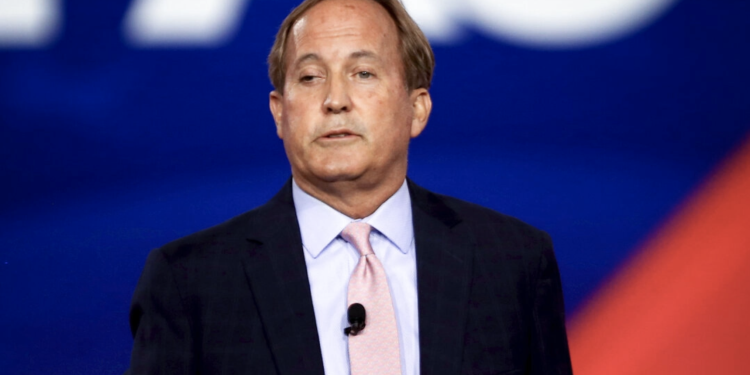AUSTIN, TEXAS — Texas Attorney General Ken Paxton is urging the Florida Bar to dismiss what he calls a “baseless, politically motivated” ethics complaint lodged against former Florida Attorney General and current U.S. Attorney General Pam Bondi. In a strongly worded letter sent this week, Paxton condemned the complaint as an example of “lawfare”—using legal systems and ethics boards to punish political opponents.
“These complaints against Attorney General Bondi are nothing less than rank lawfare targeting the lawful exercise of executive authority that the American people overwhelmingly gave to the Trump Administration,” Paxton stated. “Radical, left-wing lawyers must not be allowed to attack the legal credentials of public servants merely because they disagree with a certain policy or official decision.”
Origins of the Complaint
The complaint in question was filed by a group of progressive legal activists who allege that Bondi’s role in policies and legal actions under the Trump administration—particularly related to challenges surrounding the 2020 presidential election and COVID-19 policies—constituted professional misconduct. The activists claim that Bondi’s conduct breached legal ethics and warrants investigation and disciplinary measures from the Florida Bar.
The challenge reflects a broader national trend in which political and legal battles are increasingly playing out through state bar associations. Critics of Bondi argue that attorneys in high-ranking positions must be held accountable for legal overreach or misapplication of authority, especially when their actions affect civil liberties or election integrity.
Paxton’s Response and Broader Context
Paxton’s intervention comes against the backdrop of his own past legal scrutiny. Following his attempts to contest the results of the 2020 election on behalf of Texas voters—efforts that were ultimately rejected by the U.S. Supreme Court—Paxton faced similar ethics complaints from legal opponents. Those complaints were filed with the State Bar of Texas’s Commission for Lawyer Discipline but were later dismissed, with the Texas Supreme Court affirming that such grievances cannot be used to punish elected officials for actions taken in their official capacities.
“The complaint against Attorney General Bondi is a naked attempt to intimidate a federal official in the exercise of her duties,” Paxton wrote in his letter. “It is political vigilantism dressed in the garb of professional ethics. And it represents a dangerous encroachment upon the federal executive’s constitutional domain.”
Paxton warned that allowing such complaints to proceed sets a troubling precedent for political retaliation masked as legal discipline.
To read Paxton’s full letter to the Florida Bar, [click here].
Competing Goals
Attorney General Pam Bondi and her supporters are seeking dismissal of the complaint and a broader reaffirmation that bar associations cannot be weaponized for partisan purposes. They argue that Bondi’s actions were part of her legitimate duties in serving a duly elected administration and must be protected from political reprisal.
The complainants, on the other hand, are seeking accountability for what they view as abuse of legal power during Bondi’s tenure, particularly relating to efforts to undermine the results of the 2020 election and her support for controversial executive policies. Their goal is for the Florida Bar to uphold legal standards by investigating what they claim is a misuse of public trust by a licensed attorney in public office.
Final Outcome
The Florida Bar has yet to issue a formal decision regarding the complaint. Meanwhile, Paxton’s public involvement adds political weight to the growing debate over whether state bar associations should remain neutral guardians of professional conduct or be allowed to act as arbiters in politically charged disputes involving public officials.
As the legal community and political observers await the Florida Bar’s response, the case underscores the increasingly blurred lines between law, politics, and professional accountability in America’s polarized public sphere.






